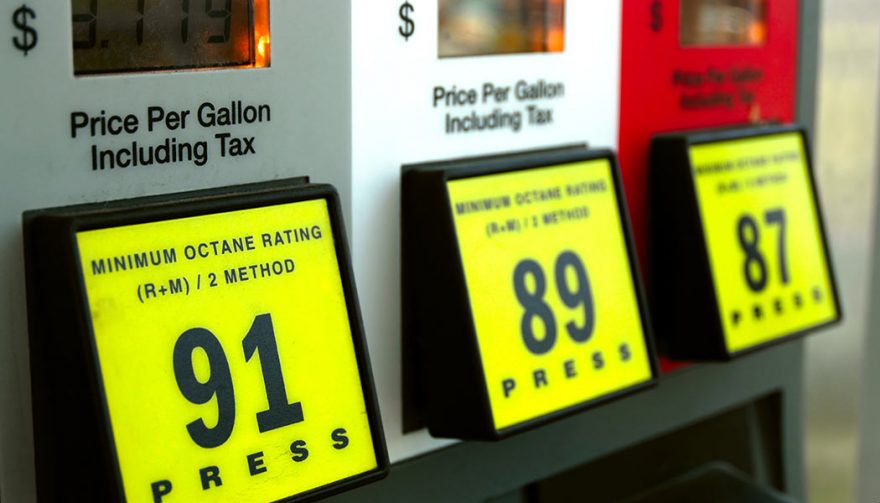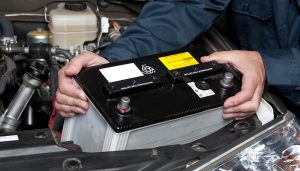
Check your owner's manual before you decide to buy premium gas
Are You Wasting Money on High Octane Gas?
Premium vs regular gas, which is better? What about a mid-grade fuel, something in between? You can save money or waste it, depending on your choice at the pump.
Regular gas is usually defined as 87 octane. Premium gas is 91 or 93 octane. Midgrade gas, you guessed it, is in the middle of that range. If you want a fuel with a higher-octane rating, you have to pay more for it.
But do you need a higher octane? The first thing you want to do is check your owner’s manual. It will tell you what octane rating your car’s engine is designed for. If your car is rated for regular 87-octane fuel, you’re wasting money putting premium gasoline in your car.
Premium vs Regular Gas: Economics
Contrary to popular thinking, octane does not act like “vitamins” for your fuel. It does not help gasoline burn faster, cleaner or start the engine quicker. It does not give you any extra performance. Sorry.
It certainly does not yield any better gas mileage. With octane, the old adage of “if a little is good, then more is better” does not ring true here.
So, spending more money to get fuel with a higher-octane rating than what your car requires does not give you anything you need. It just takes that extra 15 cents per gallon, on average, out of your pocket.
Over time and miles, that 15 cents adds up. The typical suburbanite drives about 18,000 miles per year. For our purposes, let’s say the average fuel economy for all the cars on the road is 20 mpg.
That means that our “average” driver (we know that no one person ever fits the description of average) purchases about 900 gallons of fuel each year. If you overspend by 15 cents per gallon by buying a premium grade of fuel when your car doesn’t need it, you are wasting about $135 per year.
That’s enough money to pay for two synthetic oil changes, or three conventional oil changes. I know, prices are different where you live. I’m just trying to illustrate a point of economics.
Octane and Engine Knock
Octane is a chemical compound, meaning it is composed of other chemicals in varying proportions. Its only purpose in gasoline is to prevent that annoying problem of engine knocking, sometimes referred to as pinging.
You will hear that annoying noise most often under light to moderate acceleration and at cruise conditions. The noise is not from mechanical components hitting each other inside your engine, although it sounds just like that. That noise is from the fuel-rich vapor igniting before it is supposed to inside the closed combustion chamber.
Those little pockets of fuel and air vapor burst into flame because the fuel doesn’t have a high enough octane content, or rating, to resist prematurely bursting into flame. It sounds tragic.
Then those traveling rogue pockets of combustion hit, violently, the normal flame front of combustion as it advances on its normal course, minding its own business. The resulting collisions of the flame fronts (all this happens really fast) makes that knocking sound.
There’s a lot of intense discussion around the phenomenon of pre-ignition. It’s typically described as happening when something very hot inside the combustion chambers ignites the air and fuel mixture before the spark plug fires. It could be a piece of carbon or a spark plug electrode that is too hot, from having a spark plug with an improper heat range (it holds too much heat in its electrode and insulator).
Either way, if the noise goes away when you switch to a higher-octane fuel, the problem was simple detonation. If not, then you have to fix your engine.
By now you should be getting the idea that you are wasting money on premium gasoline if your car does not require it.
How Are Octane Ratings Determined?
Two different methods of measuring the octane content of a fuel are used, added together, then divided by two to arrive at an average. The average is the octane number proudly posted at the pump.
That’s also why you see this equation prominently displayed on the pumps at gas stations: R + M / 2. And we all thought that algebra had no useful function in everyday life. Use that to get your kids interested in math, the fun way. By law, the octane rating has to be posted on gas pumps.
Back to the point, that simple equation means the “Research Octane Number” (RON) method and the “Motor Octane Number” (MON) methods of octane rating were used to arrive at that fuel’s grade.
Yes, it’s more than anybody needs to know, but, hey, the government thinks we need to know it before putting gas into our cars.





